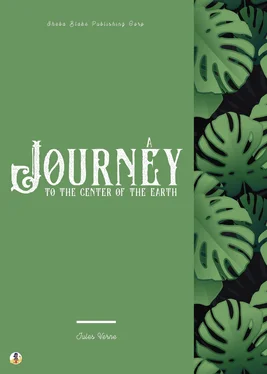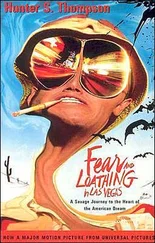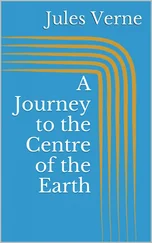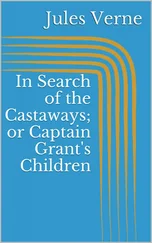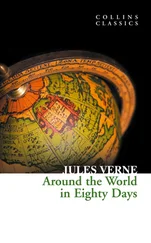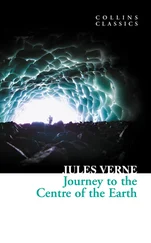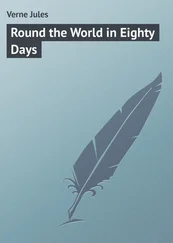“Indeed;” I cried, keeping up wonderfully, “of course it is a German translation?”
“What!” sharply replied the Professor, “a translation! What should I do with a translation? This is the Icelandic original, in the magnificent idiomatic vernacular, which is both rich and simple, and admits of an infinite variety of grammatical combinations and verbal modifications.”
“Like German.” I happily ventured.
“Yes,” replied my uncle, shrugging his shoulders; “but, in addition to all this, the Icelandic has three numbers like the Greek, and irregular declensions of nouns proper like the Latin.”
“Ah!” said I, a little moved out of my indifference; “and is the type good?”
“Type! What do you mean by talking of type, wretched Axel? Type! Do you take it for a printed book, you ignorant fool? It is a manuscript, a Runic manuscript.”
“Runic?”
“Yes. Do you want me to explain what that is?”
“Of course not,” I replied in the tone of an injured man. But my uncle persevered, and told me, against my will, of many things I cared nothing about.
“Runic characters were in use in Iceland in former ages. They were invented, it is said, by Odin himself. Look there, and wonder, impious young man, and admire these letters, the invention of the Scandinavian god!”
Well, well! not knowing what to say, I was going to prostrate myself before this wonderful book, a way of answering equally pleasing to gods and kings, and which has the advantage of never giving them any embarrassment, when a little incident happened to divert conversation into another channel.
This was the appearance of a dirty slip of parchment, which slipped out of the volume and fell upon the floor.
My uncle pounced upon this shred with incredible avidity. An old document, enclosed an immemorial time within the folds of this old book, had for him an immeasurable value.
“What’s this?” he cried.
And he laid out upon the table a piece of parchment, five inches by three, and along which were traced certain mysterious characters.
Here is the exact facsimile. I think it important to let these strange signs be publicly known, for they were the means of drawing on Professor Liedenbrock and his nephew to undertake the most wonderful expedition of the nineteenth century.
[Runic glyphs occur here]
The Professor mused a few moments over this series of characters; then raising his spectacles he pronounced:
“These are Runic letters; they are exactly like those of the manuscript of Snorre Turlleson. But, what on earth is their meaning?”
Runic letters appearing to my mind to be an invention of the learned to mystify this poor world, I was not sorry to see my uncle suffering the pangs of mystification. At least, so it seemed to me, judging from his fingers, which were beginning to work with terrible energy.
“It is certainly old Icelandic,” he muttered between his teeth.
And Professor Liedenbrock must have known, for he was acknowledged to be quite a polyglot. Not that he could speak fluently in the two thousand languages and twelve thousand dialects which are spoken on the earth, but he knew at least his share of them.
So he was going, in the presence of this difficulty, to give way to all the impetuosity of his character, and I was preparing for a violent outbreak, when two o’clock struck by the little timepiece over the fireplace.
At that moment our good housekeeper Martha opened the study door, saying:
“Dinner is ready!”
I am afraid he sent that soup to where it would boil away to nothing, and Martha took to her heels for safety. I followed her, and hardly knowing how I got there I found myself seated in my usual place.
I waited a few minutes. No Professor came. Never within my remembrance had he missed the important ceremonial of dinner. And yet what a good dinner it was! There was parsley soup, an omelette of ham garnished with spiced sorrel, a fillet of veal with compote of prunes; for dessert, crystallised fruit; the whole washed down with sweet Moselle.
All this my uncle was going to sacrifice to a bit of old parchment. As an affectionate and attentive nephew I considered it my duty to eat for him as well as for myself, which I did conscientiously.
“I have never known such a thing,” said Martha. “M. Liedenbrock is not at table!”
“Who could have believed it?” I said, with my mouth full.
“Something serious is going to happen,” said the servant, shaking her head.
My opinion was, that nothing more serious would happen than an awful scene when my uncle should have discovered that his dinner was devoured. I had come to the last of the fruit when a very loud voice tore me away from the pleasures of my dessert. With one spring I bounded out of the dining-room into the study.

“Undoubtedly it is Runic,” said the Professor, bending his brows; “but there is a secret in it, and I mean to discover the key.”
A violent gesture finished the sentence.
“Sit there,” he added, holding out his fist towards the table. “Sit there, and write.”
I was seated in a trice.
“Now I will dictate to you every letter of our alphabet which corresponds with each of these Icelandic characters. We will see what that will give us. But, by St. Michael, if you should dare to deceive me—”
The dictation commenced. I did my best. Every letter was given me one after the other, with the following remarkable result:
mm.rnlls esrevel seecIde sgtssmf vnteief niedrke kt,samn atrateS saodrrn emtnaeI nvaect rrilSa Atsaar .nvcrc ieaabs ccrmi eevtVl frAntv dt,iac oseibo KediiI
[Redactor: In the original version the initial letter is an ‘m’ with a superscore over it. It is my supposition that this is the translator’s way of writing ‘mm’ and I have replaced it accordingly, since our typography does not allow such a character.]
When this work was ended my uncle tore the paper from me and examined it attentively for a long time.
“What does it all mean?” he kept repeating mechanically.
Upon my honour I could not have enlightened him. Besides he did not ask me, and he went on talking to himself.
“This is what is called a cryptogram, or cipher,” he said, “in which letters are purposely thrown in confusion, which if properly arranged would reveal their sense. Only think that under this jargon there may lie concealed the clue to some great discovery!”
As for me, I was of opinion that there was nothing at all, in it; though, of course, I took care not to say so.
Then the Professor took the book and the parchment, and diligently compared them together.
“These two writings are not by the same hand,” he said; “the cipher is of later date than the book, an undoubted proof of which I see in a moment. The first letter is a double m, a letter which is not to be found in Turlleson’s book, and which was only added to the alphabet in the fourteenth century. Therefore there are two hundred years between the manuscript and the document.”
I admitted that this was a strictly logical conclusion.
“I am therefore led to imagine,” continued my uncle, “that some possessor of this book wrote these mysterious letters. But who was that possessor? Is his name nowhere to be found in the manuscript?”
My uncle raised his spectacles, took up a strong lens, and carefully examined the blank pages of the book. On the front of the second, the title-page, he noticed a sort of stain which looked like an ink blot. But in looking at it very closely he thought he could distinguish some half-effaced letters. My uncle at once fastened upon this as the centre of interest, and he laboured at that blot, until by the help of his microscope he ended by making out the following Runic characters which he read without difficulty.
Читать дальше
